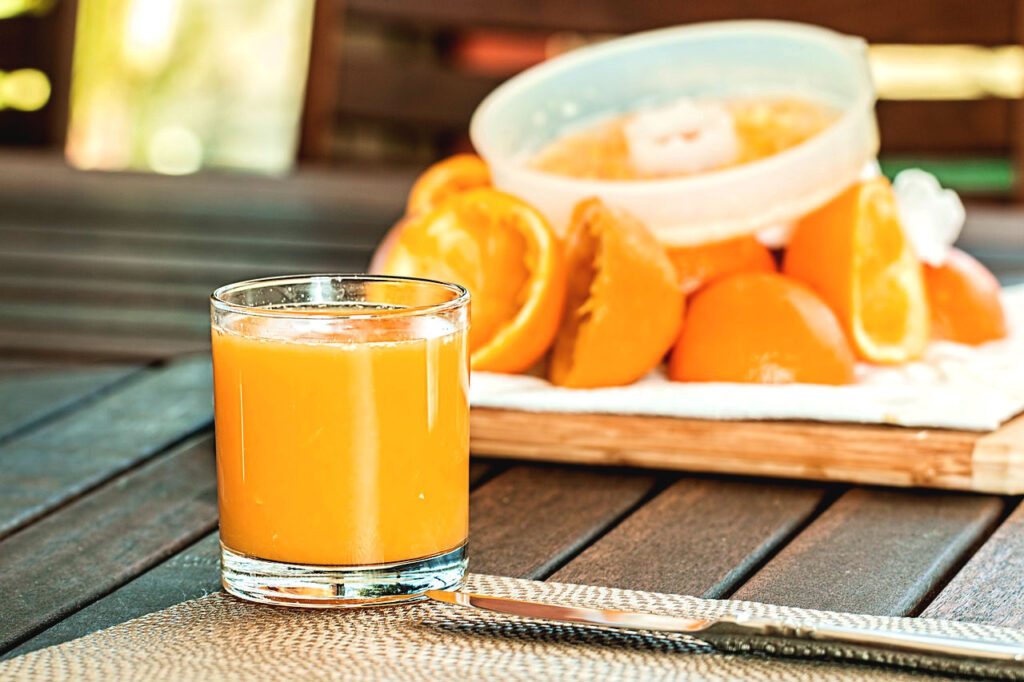Juicing to Lose Weight: Slimming Down Pound by Pound
Juicing to lose weight is not a walk in the park like most people think. Like any diet, limiting foods you normally eat and substituting them for juice isn’t easy. It’s also important that you pick the right ingredients that not only aid in losing weight but also nourish your body with the vitamins, nutrients, and minerals it needs to run at peak efficiency.
- Dieting and Juicing: What to Consider
- 1 -How much weight do you need to lose?
- 2- Are you considering a long-term diet or a short-term diet?
- 3 – Will the diet require a drastic change in your daily food intake?
- 4 – Will you actually like the foods in your diet?
- 5 – Does the diet require putting your body into "starvation" mode by severely limiting calories or carbohydrates (ketosis)?
- 6 – How will you maintain weight loss after your diet?
- 7 – Do you want to lose a lot of weight quickly and feel worse in the short term, or do you want to lose weight gradually in accordance with long-term goals?
- Closing Thoughts
- Juicing to Lose Weight: FAQs
- Does juicing help you lose weight faster than just eating fruits and veggies?
- What are the best fruits and vegetables to juice for weight loss?
- How much juice should you drink per day if trying to lose weight?
- Is it better to juice or blend produce for weight loss?
- Can you lose weight by only drinking juice?
- What are the downsides of juicing for weight loss?
Just about everyone has heard of juicing, especially those who have seen the many interesting infomercials advertising what they claim to be the latest and greatest in juicing technology. But all hype aside, many people have successfully lost weight juicing as a supplement to their weight loss plan.
When juicing, it’s important to remember that if done correctly, there’s no need to get malnourished or starve yourself. One great benefit of juicing, unlike other kinds of diets, is that natural juice is very easy to digest. You shouldn’t experience any serious digestion issues like constipation.
Dieting and Juicing: What to Consider
When venturing out to lose weight, there are many factors to remember. There are pros and cons to any diet, including juicing. It’s very important to draw out a solid dieting plan in your mind or on paper before venturing to lose weight. As you plan, you’ll find there are several things you’ll want to prepare for.
Therefore, let’s consider a few basic pre-diet questions and how they relate to juicing.
1 -How much weight do you need to lose?
Do you need to lose 5 pounds or 50 pounds? It’s always important to set realistic and tangible goals when losing weight. Juicing can be an integral part of substantial weight loss or for just losing a few pounds. Plus, each glass of fresh juice in the diet will be filled with vitamins, minerals, and phytonutrients to keep your body running efficiently.
2- Are you considering a long-term diet or a short-term diet?
This is a very crucial question to consider when setting your weight-loss goals. If your goal is to lose 20 pounds, do you want to lose that weight in a few weeks or a few months?
Short Term:
While long-term diets tend to be healthier and short-term diets tend to “shock” your body into weight loss, your choice will depend on what comfort level you want to maintain over the duration of your diet.
Juicing “detox” diets can be useful for quick weight loss, but you will also experience discomfort. While diets that contain only juice will contain vitamins and nutrients, they’re often lacking in protein and fiber. For some people, this isn’t a problem.
Also, these aggressive short-term “shock” diets make it more difficult to exercise and function normally since you’ll be consuming 500-1000 fewer calories per day than you’re used to.
Long Term:
If the short-term diet isn’t your thing, you can also juice in the long term by supplementing various meals and/or snacks with healthy homemade juice substitutes instead. Perhaps your goal will be to replace one meal daily with a cup of vegetable juice. Or maybe two meals per day?
While this kind of diet can be used for weight loss, it will only be as effective as the overall diet plan and will heavily depend on your discipline in eating healthy for those meals you choose to eat.
In other words, if you splurge when you eat your regular meals, juice substitutions for other meals will likely not result in any considerable weight loss. Therefore, long-term diets will provide you with gradual weight loss and a certain level of comfort absent from more aggressive weight-loss plans.
3 – Will the diet require a drastic change in your daily food intake?
Since juicing can be tailored to fasting preferences and is part of a supplement to holistic dieting, it won’t necessarily require any substantial change in your food intake. However, that will depend on how quickly you want to lose weight, how comfortable you want to be during weight loss, and how much you want to lose.
4 – Will you actually like the foods in your diet?
Juicing recipes can be customized to your tastes quite easily! This question doesn’t pose any problem for juicing. If you like the taste of homemade veggie juice, great! If not, you can add things like lemon, ginger, cinnamon, peppermint, rosemary, or other ingredients to make the juice more palatable.
However, if you have a sweet tooth, adding too much tasty fruit can be tempting. While natural sugars from fruit aren’t “banned” in this diet, moderation is key. It’s almost too easy to throw an extra handful of berries into the juicer or mix a substantial amount of honey into your once-healthy glass of juice.
If you do want to add some sweetness, though, stick to the berries and avoid the honey.
It’s true that with just about any diet, there’s always a way to cheat. So, be on your guard.
5 – Does the diet require putting your body into “starvation” mode by severely limiting calories or carbohydrates (ketosis)?
Again, since juicing can be used in the short term for quick weight loss or in the long term to supplement an existing diet plan, it’s unnecessary to shock your body’s normal routine unless you want to. Oftentimes, when people think of juicing, they think of juice fasting. While that’s one method of juicing, it’s not necessary for losing weight and shouldn’t be representative of juicing in general.
6 – How will you maintain weight loss after your diet?
If you think you may want to opt for a short-term dieting plan, how will you keep from gaining weight again after reaching your goals?
This specific question is why so many diets are met with criticism: Many people gain weight right back shortly after they conclude their diet. Juicing can be used for ongoing weight management since you can easily satisfy your cravings with a healthy juice recipe instead of sugary or fatty snacks.
7 – Do you want to lose a lot of weight quickly and feel worse in the short term, or do you want to lose weight gradually in accordance with long-term goals?
Diets aren’t always comfortable; that’s just the reality of losing weight. Some people would rather experience more discomfort to lose weight quickly. On the other hand, others may decide that it’s healthier for them to shed those pounds gradually. Juicing will be compatible with whichever strategy you choose for your weight loss goals.
Closing Thoughts
Dieting really is simple. Now, you might find yourself thinking, “No way!”. Really, dieting is simple, but it isn’t easy. On the contrary, it can be overwhelmingly difficult. Juicing can be successfully used to meet and exceed your weight loss goals while increasing your likelihood of accomplishing those goals.
- It’s an excellent fix for sudden cravings, a great pick-me-up in the morning without consuming many calories, and it provides your body with many nutrients.
- Food variation and choice selections oftentimes make or break a diet. With juicing, endless variations can suit any taste or preference you desire.
- If you’re not one to eat lots of fruits and vegetables, it’s a great way to take advantage of nutrients you’ve been missing out on. So, if you plan on dieting and shedding pounds, juicing is yet another tactic to add to your arsenal.
Our family’s preference? We’ve decided to try to stick to whole foods and plants during the week and reduce meat intake to weekends and holidays. Also, we usually opt for smoothies rather than juicing since they contain more natural plant material, like fiber. If you’re making a transition to your overall diet, though, juicing can be a solid first step.
Juicing to Lose Weight: FAQs
Does juicing help you lose weight faster than just eating fruits and veggies?
Juicing removes fiber from fruits and vegetables so that you may absorb nutrients quickly. However, the fiber in whole foods helps you feel full. Juicing alone won’t lead to long-term weight loss.
What are the best fruits and vegetables to juice for weight loss?
Some good options are green, leafy veggies like kale, spinach, chard, or celery. Fruits low in sugar, like berries, grapefruit, lemons, or limes, are also great for juicing.
How much juice should you drink per day if trying to lose weight?
1-2 cups of fresh vegetable juice can supplement a healthy diet. However, too much juice can lead to excess sugar and calories without adequate fiber. Moderation is key. We prefer smoothies, but not everyone likes smoothies.
Is it better to juice or blend produce for weight loss?
Blending keeps all the fiber intact, which causes slower nutrient absorption (nutrients absorb gradually). This could be better for weight loss by keeping you full longer. Juicing may have a diuretic effect.
Can you lose weight by only drinking juice?
An all-juice diet lacks the protein and fiber needed for sustainable weight loss. Juicing for occasional meals can support a healthy diet but shouldn’t replace balanced whole-food, plant-based meals. As always, meats and added fats should eaten sparingly.
What are the downsides of juicing for weight loss?
Fiber removal can cause spikes in blood sugar. An all-juice diet can be low in protein. Juice diets are hard to maintain long-term compared to balanced healthy eating.



This is great start for the weight loss journey. I am highly dependent on juices for my weight loss. I have been trying all fresh fruit juices, vegetable juices, homemade juices, green juices, etc. You have to keep changing types of juices you drink to get all nutrients.